Ancient Chinese called their land the Middle Kingdom, believing it to be the center of the world. This belief spoke to their understanding of their unique geography and place in the world. For ages, they felt that the country’s mountainous borders and the Gobi desert were too insurmountable to cross. Due to factors like this, China was somewhat isolated from the rest of the world.
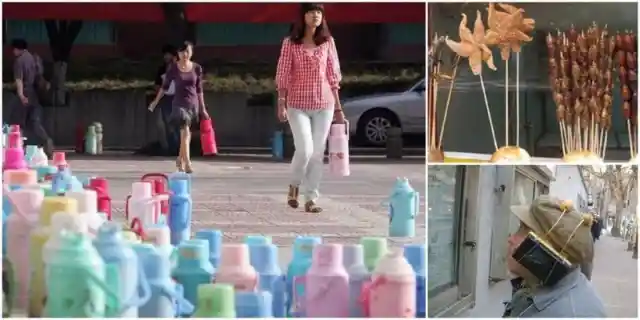
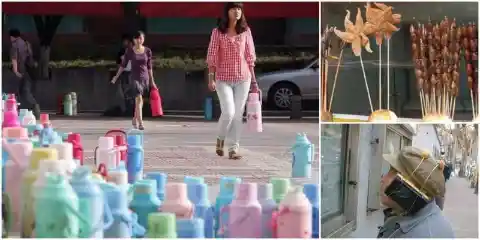
This had the effect of creating a unique heritage, passed down from generation to generation in a chain that makes up the longest continuous civilization. For 7,000 years, the Chinese have developed practices, beliefs, customs, and traditions that are sharply identified as their own, making them unique and fascinating to the rest of the world.
Special Parking Spaces for Women
At some stores and businesses in China, women have been given special parking spaces. Often, they’re outlined in pink with the picture of a high-heel. This might seem like an uncomfortable stereotype to some because it suggests all women like pink things and high-heels. What do you think?
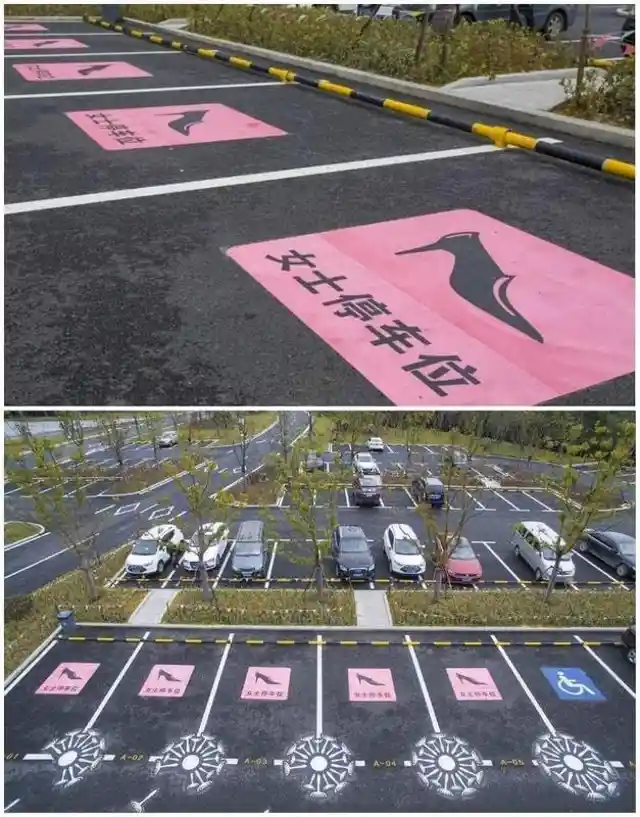
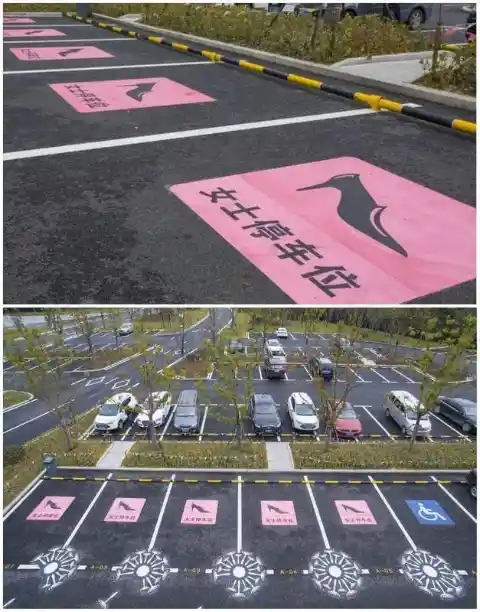
As you can see from the picture above, these women-only parking spaces are a bit wider than the regular spots on the other side. Is this an allusion to women’s parking abilities? Also, these parking spaces are closer to store entrances. What’s the reasoning behind that?
Sidewalk Dentists
It’s legal to become a dentist in China by virtue of having a long-standing family practice. That means being part of a generation of families who practice dentistry. Right outside your apartment or house, you may find dentists on the sidewalks ready to pull out an aching tooth.


Like many countries, China has plenty of dentists who are formally educated and use the latest technology, but they also have lots of informal dentists who set up shop on the sidewalks. Although it may be cheaper, we recommend spending a bit more to meet a licensed dentist instead.
Robot Substitutes
A walk inside major cities in China will give guests a glimpse of how businesses will be run in the future. Namely, with robots. Whether this will be a good thing for humans still remains to be seen. Regardless, in a variety of Chinese industries, robots have already replaced traditional human workers.
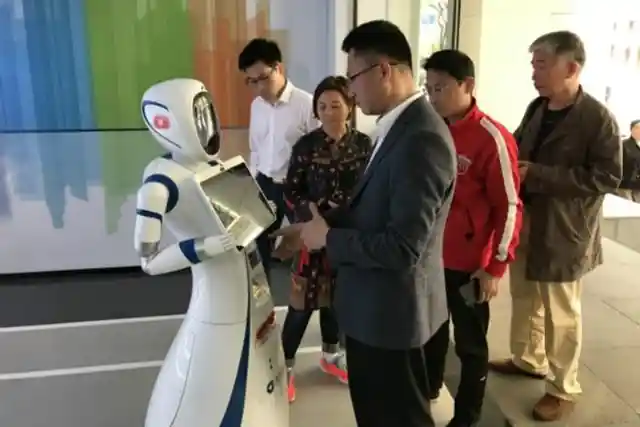
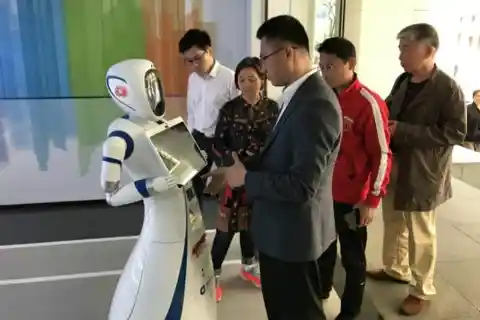
Banks use Artificial Intelligence for their services. This can include identifying a client and verifying a client through a nasal sample – no need to bring cash along when you can settle bills so easily with their AI technology.
Extended Bikinis
Chinese women find themselves in a dilemma. They love going to the beach for swimming and fun, but they also love their pale complexion. What’s their solution? The invention of bikinis that extend up to their face, also known as “face-kinis.”


While westerners love to lie on the shoreline to get their tan, the Chinese indulge themselves in beach activities without compromising their skin complexion. The downside to the extended suit is that it looks a bit ghostly, almost like a Halloween costume.
Mascots at Work
A regular workday in China is similar to many other countries. There are long lines of commuters, customers waiting for shops to open to get their caffeine fix, and plenty of vehicles on the road. That being said, not everything is the same.
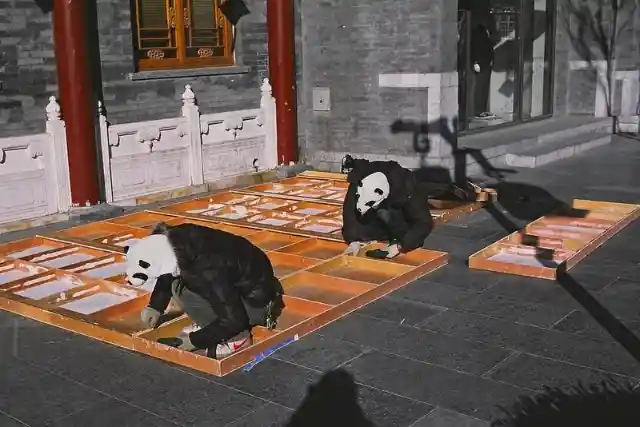
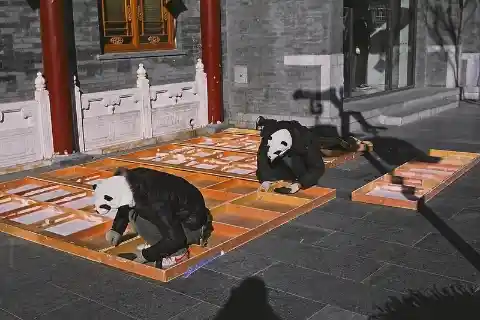
For example, you might be surprised to see some workers dressed up as pandas on their way to work. It’s the uniform they wear to reflect their communal effort to save the national animal from extinction. This effort has led to pandas not being on the endangered species list.
Canned Clean Air
Sadly, in the quest to build a better life for its people, China’s atmosphere has become among the most polluted in the world. Greenhouse gas emissions from factories, fossil fuels, and transportation have filled the air with carbon dioxide at an alarming rate.
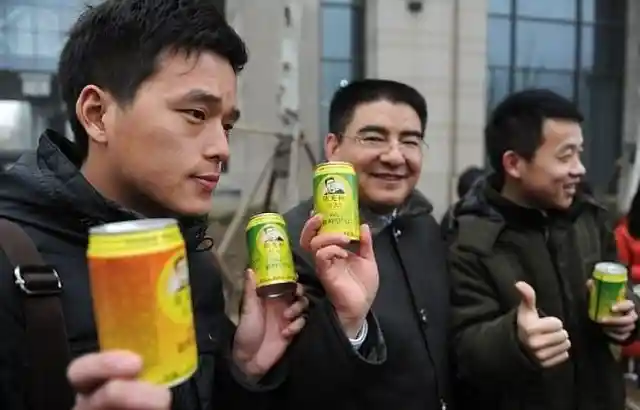
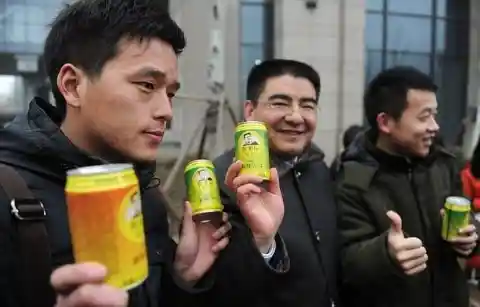
To protect the lives of millions of people who suffer from the negative effects of air pollution, Chinese companies are now selling clean air in cans. Businessman Chen Guangbiao has sold 8 million of these only-in-China products so far.
Traditional Launching of Lanterns
If one could visit China during their New Year celebration, which normally happens in the month of February or the early days of March, it would be a grand experience to witness their Lantern Festival.
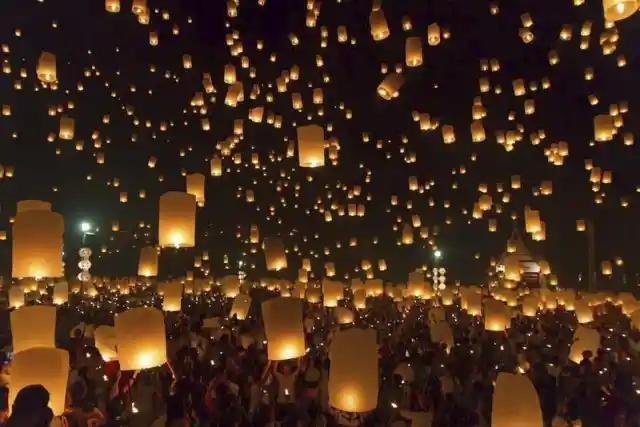
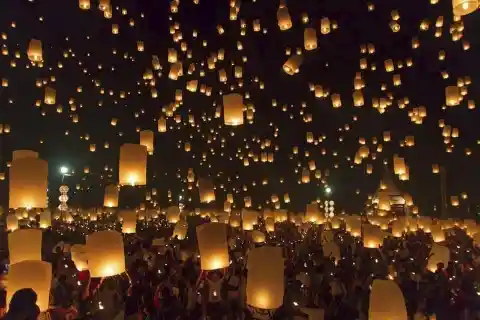
Typically colored red and artistically rendered, kids also scribble answers to riddles that are part of their design. When they let it fly, it can be a transformative experience. They let go of the past in order to become their better selves in the new year.
Prominent Chinese Statues
To the uninitiated, finding three statues in parks and homes around China will come as a bizarre experience. The belief is that these star gods will draw harmony to the family when placed in the home. These three wise men are believed to be deities of happiness, prosperity, and professional success.
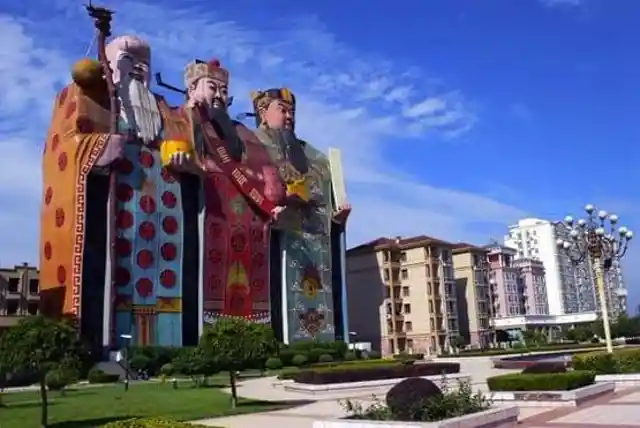

You can even find a hotel in the shape and form of these three gods. They are part of the people’s culture, inculcated in their daily lives, practices, and even their arts and architecture.
Highway Overload
With China’s population problem exceeding 1.4 billion, their national highways have become too congested with movement. Traffic regularly outnumbers highway capacity. A minor breakdown could quickly turn into a major problem with long delays. The media has even reported that some traffic can last for days!


Can you imagine being in a vehicle jam without food, unable to use the toilet, and being fed by the constant honking of converging vehicles? Although the above picture didn’t take days to resolve, if you were stuck in that traffic jam, it just might feel like it.
Population Explosion
China’s population problem is manifested not only through traffic congestion, as previously shown, but almost everywhere else in the nation. It is part of what makes them strong as a country, buttressed by the biggest army in the world, yet in some ways, it is also their Achilles heel.


The photo above isn’t a tiled wallpaper on one’s computer screen. Apparently, even China’s water parks have taken the toll of population growth; people seem to be spilling over from one spot to the next.
Geese Force
The sight of them grouping at the station might invite a few chuckles, a wave of dismissal by the hand, but somehow the Chinese police have taken advantage of the protective traits that geese have been known for centuries.
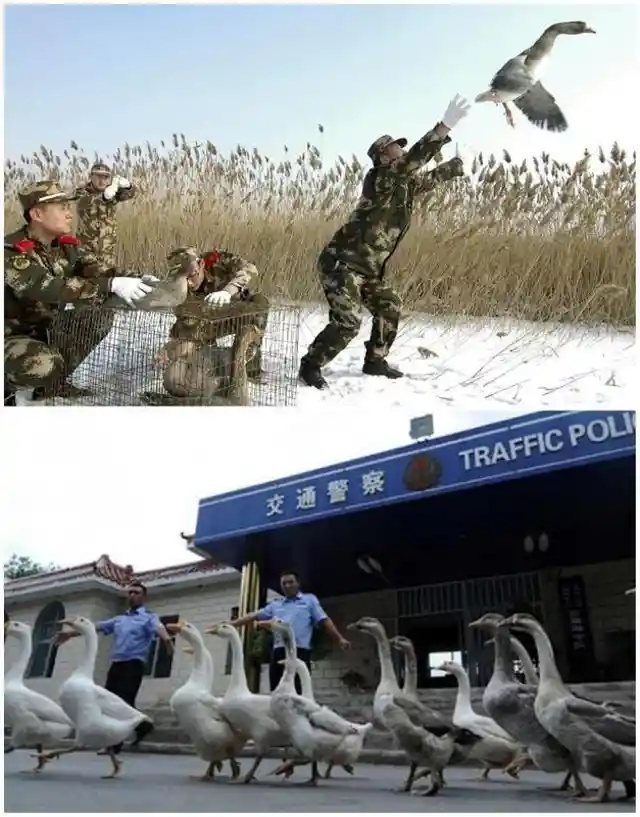

Unlike guard dogs, geese can fly and hence detect threats from an aerial perspective. They honk and pursue the threat without stopping. So don’t take it lightly once you see the Chinese geese force. They are China’s legit sentinels on duty.
Squatting in Toilets
Don’t be surprised to see comfort rooms devoid of toilet bowls in China. While western toilets may also be available in cosmopolitan sections like in airports and the country’s top hotels, cheaper squatting potties can be found almost anywhere you go.
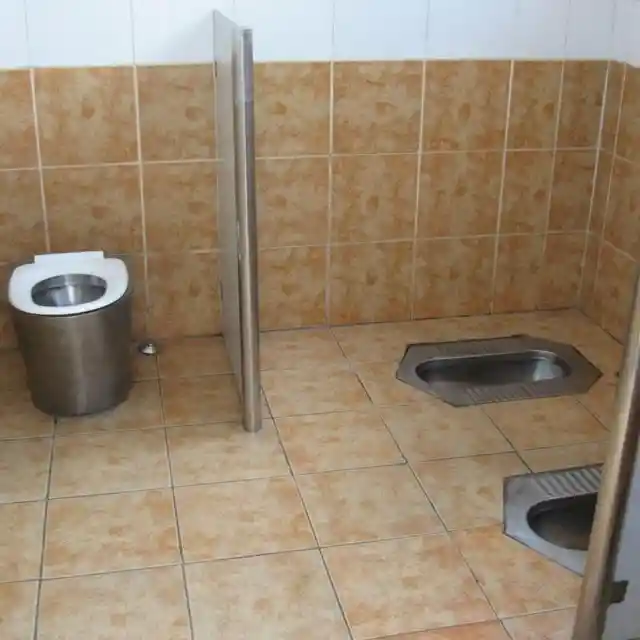

These receptacles are decidedly easier to maintain and cheaper to build. The Chinese also find it more comfortable for bowel movements to squat instead of sit on a throne. Once in China, at the john, squat when you have to go.
Marriage Fair
Older adults gradually gather around parks in China and scribble down notes that they would post on trees or tape on umbrellas. These notes are meant to choose the best traits of their daughters to advertise to men seeking a marriage partner.
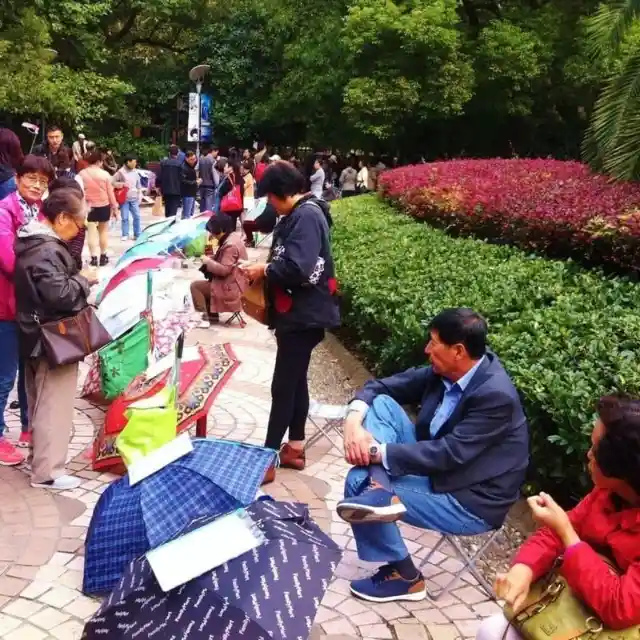
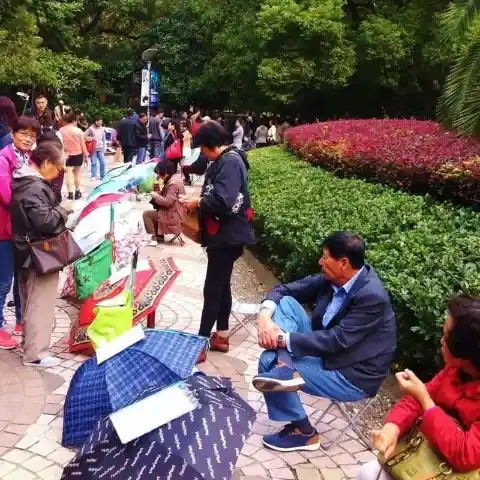
It is like a regular trade fair, and most of their products are composed of eligible women that ought to have been married by now – at least according to their parents. Marriage markets form during the weekends, and these senior traders can be quite skilled in negotiations.
China’s Labor Force
At the end of World War II, China strategically paved its way into the global stage by making use of its growing population. The government actually encouraged families to bear more children in the hope that this tactic would bring an economic boom to the nation.


The advantage of having a colossal worker capability is demonstrated in this photo as airport staff manually move a waterlogged aircraft to safety. It’s a snippet of what the Chinese can do when they utilize their unique strengths.
Bed Down in Any Place
It isn’t rare to witness a few Chinese people sleeping in public places, not just at noontime but even during rush hours. It’s in their culture to listen to the rhythm of their bodies and rest whenever they feel it is needed to rejuvenate themselves so they can perform better at their tasks.
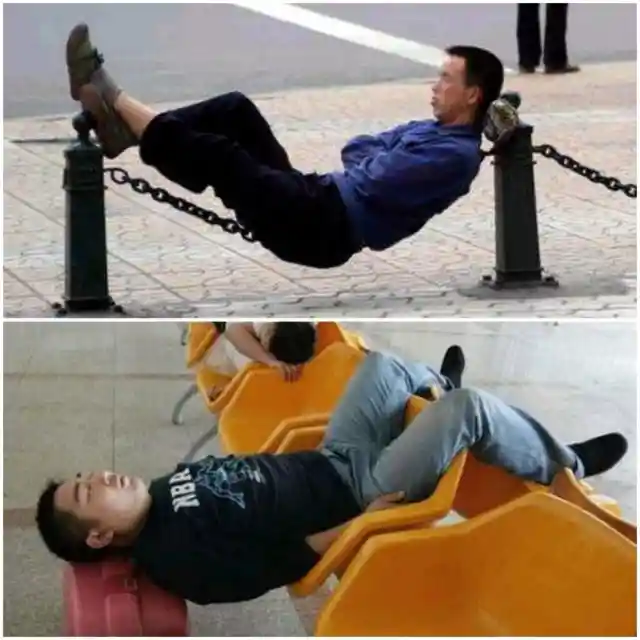
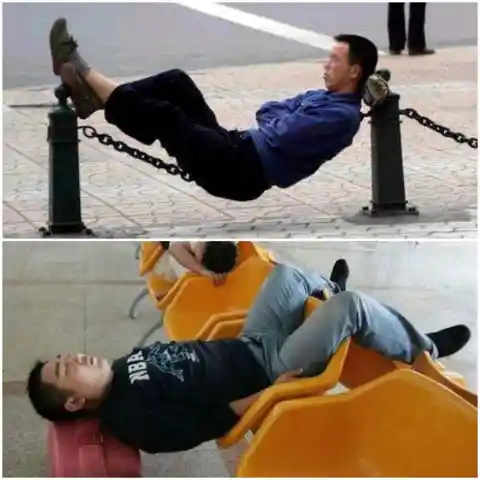
When sleepiness strikes, you see them lying down in odd positions on public benches, in parks, or crouching on stairs. They feel it is a more effective alternative to seeking a caffeine fix.
Chinese Frugality
This photo reflects the Chinese people’s attitude when it comes to saving money. They are willing to buckle down and use their creativity and resourcefulness when it comes to economizing. They are quite frugal people, and it shows in the way they do business. And this is partly why they are so successful.


Not only are they thrifty but hard-working too. It’s a trait that’s been passed down through the generations and has allowed them to get through tough economic times when there was a lot of financial uncertainty.
Spontaneous Performers
Walking the busy streets of China can lead to unique experiences that range from being anxious to get ahead of a crowd to suddenly being caught up in the middle of a dance celebration. When foreigners experience the latter for the first time, it can be a bit confusing.
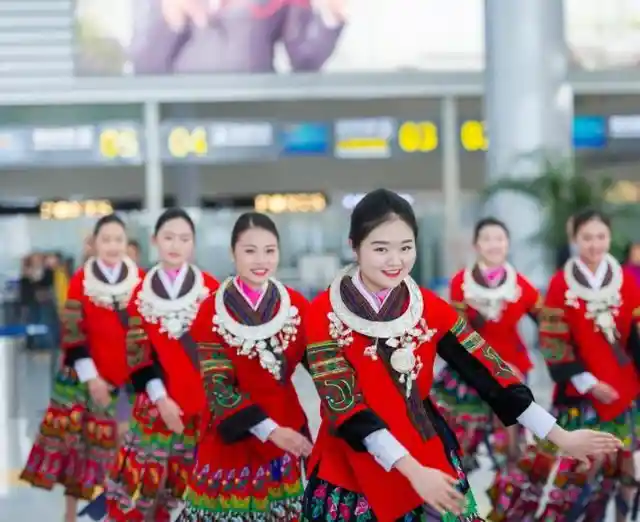
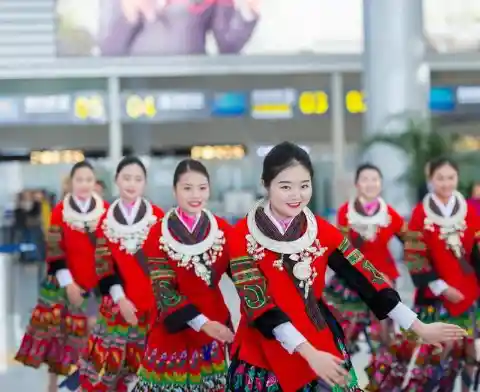
That’s how many Chinese people choose to express their sense of patriotism and artistry. These spontaneous performances often have passersby joining in the fun, singing and dancing along to celebrate Chinese culture and life.
Go With the Dragon
Upon reaching the Longqing Gorge just north of the Great Wall (Badaling), the first thing that many travelers do is to take a ride up the dragon’s belly – the world’s largest outdoor escalator. It leans slightly on the hills and takes guests up to 258 meters, where they can look out over a dam and see incoming boats.
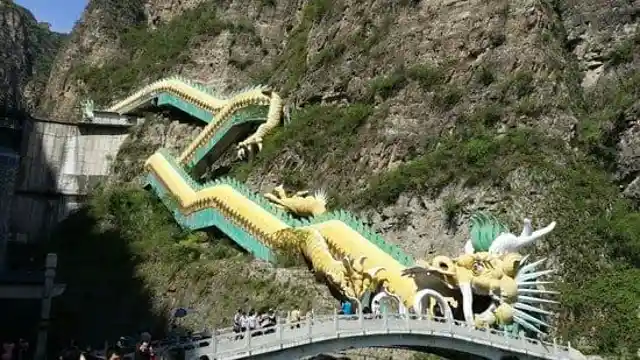
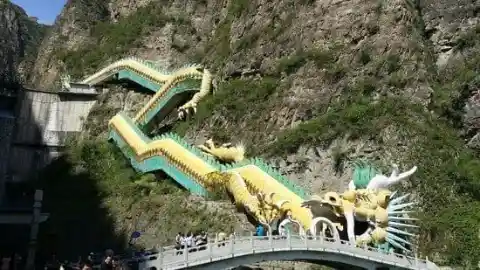
People all over the world take the opportunity to visit the gorge where the dragon structure can be found. This widely revered touristic gem demonstrates Chinese culture’s flair for symbolism.
Passion for Rod Fishing
If you’re strolling along lakes and rivers in China, you’ll be sure to find rod fishers standing on arched bridges or sitting in small boats as they dangle their lines in the water. They love to fish. Fishing isn’t merely a way to catch a daily meal – it’s also a form of recreation that they do with passion.
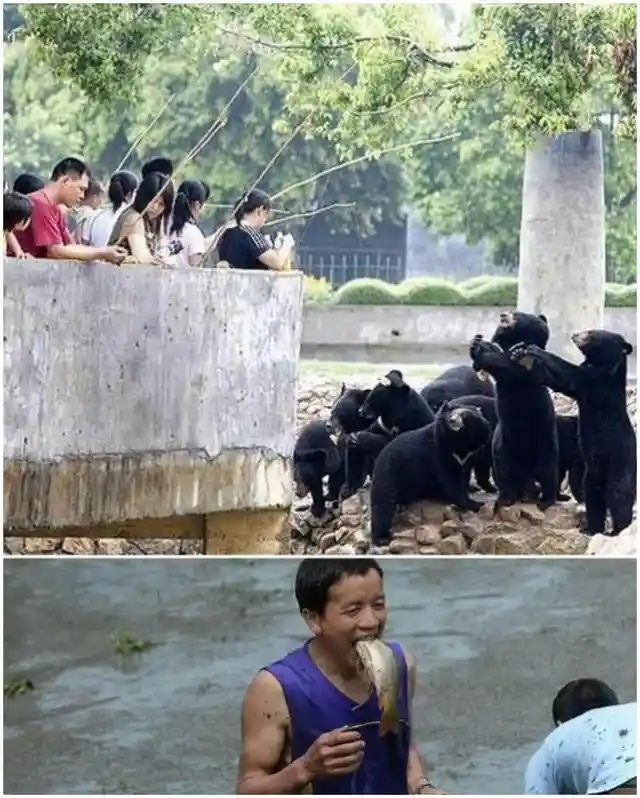
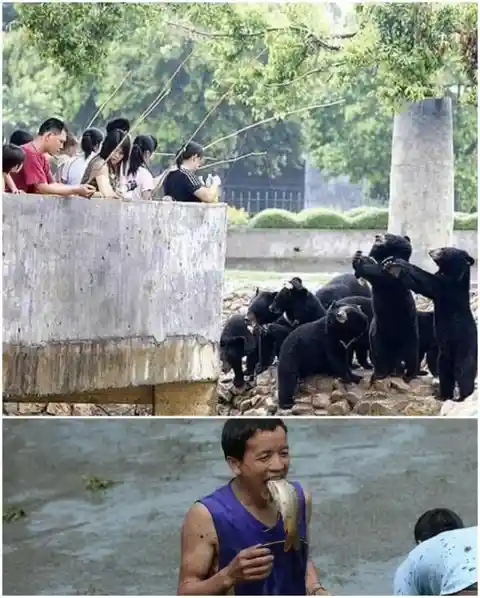
Fishers have also developed some odd habits along the way. This includes eating live fish still hanging from the line, using rods to feed other animals, and attacking the fish with a rod.
Chinese Pragmatism
In spite of China’s status as an economic powerhouse, its people remain very keen when it comes to business opportunities. It’s not in their culture to just lie around and take it easy. Whatever situation they find themselves in, Chinese people usually show a great deal of pragmatism.


This can be seen in the way they transport goods, as the pictures above show. Rather than wasting precious time by taking multiple trips back and forth, they manage to perfectly secure a large load and still drive safely.
Fireworks Ban
It is a well-known fact that fireworks were first invented in China. The early types – Catherine wheels, little rockets, and roman candles – were being set off long before anyone in Europe or other parts of the world had any idea of how to do it. So why do they ban fireworks in many places?


Mostly it’s for safety reasons – they want to prevent fire incidents from getting out of control. At one point in time, fireworks were totally banned, but nowadays, the ban has been lifted, and people use them once again for festivals and celebrations.
Great Love for Pandas
Pandas are the national animal of China, and people show great love for these adorable little creatures. This can be seen in the fact that many people wear panda-themed clothes and buy panda-theme knick-knacks to show their support for fostering and protection efforts.


Staff members at panda conservation groups even go a step further to show their commitment to the cause. They literally pose as chunky panda bears themselves, so the animals feel more comfortable with them in their own environment.
Chilli Therapy
It is not every day that a western traveler sees a bunch of people half-submerged in a pool of chilies, hot-faced, munching the pepper at lightning speed. But this strange competition is a part of Chinese culture. One time, a competitor ingested fifty chilies in a little over a minute!


The Chinese have long believed that eating chilies is healthy. That’s why they’ve mixed it into nearly every meal they make. It also helps to ward off the negative effects of cold weather.
Dingzihu Homes
Also known as Nail Houses, these homes have become popular tourist sites for some because they’re stubbornly situated in the middle of thoroughfares or amid metropolitan developments. Their presence is known to cause traffic and construction delays, and many consider them to be an eyesore.


Usually, they’re owned by people who refuse to sell their land. Either that or they refuse to accept the poor compensation that infrastructure developers are offering. These homeowners stand firm on their principles, like pointed nails; thus the title they are given.
Exceptionally Patriotic
There was a point in China’s history when its young citizens wanted their nation to be modeled on western nations. To achieve this goal, they studied foreigners and western values in the hope of applying those lessons to their homeland.


This didn’t, however, make them lose interest in their own country. On the contrary, their love for China has grown. They have become more patriotic than ever, as exemplified by young men having stylized haircuts of Chairman Mao and Tiananmen Square.
Dainty Facemasks
It must have been a bit odd observing Chinese people wearing face masks years before the pandemic. However, people from China and other Asian countries have been doing this for a long time because it’s one way to battle the negative effects of air pollution.
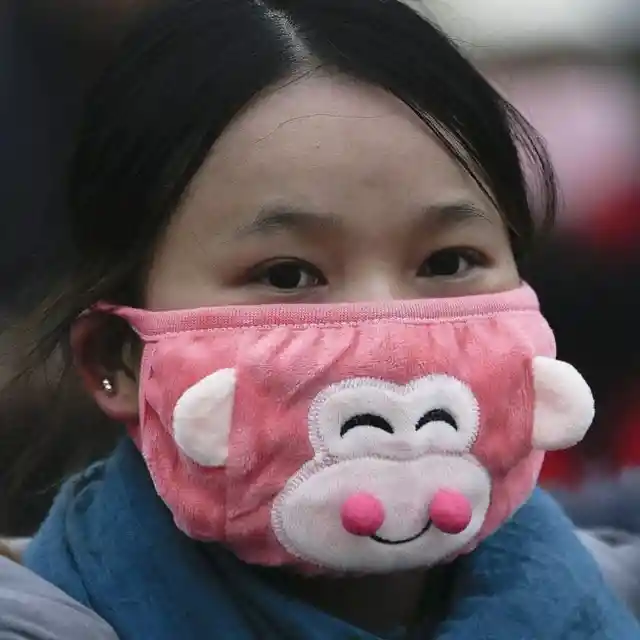

They have adapted to this practice in a way that reflects their personality and creativity. This comes out in the form of themed face masks that showcase cartoon characters and cute animals in a variety of color choices.
Bedtime Fashion
Foreign visitors to China might think they are dreaming when they walk out of their hotel rooms and see people roaming the city streets in pajamas. However, it’s not a dream. Bedtime fashion is a big deal in the country, especially among the elderly.


People don’t mind going out for groceries in the same clothes they’d wear if they were going to bed. They love their colorful pajamas with cute prints. The practice may be odd in other countries, but the Chinese do it often because it’s cheap and comfortable.
Magical Landscape
This vast wetland reminds us of a postcard made of lenticular material, a child’s favorite print type that changes its images when shifted or viewed from different angles. It starts as a typical green in the summertime and subtly shifts to the reds of autumn.
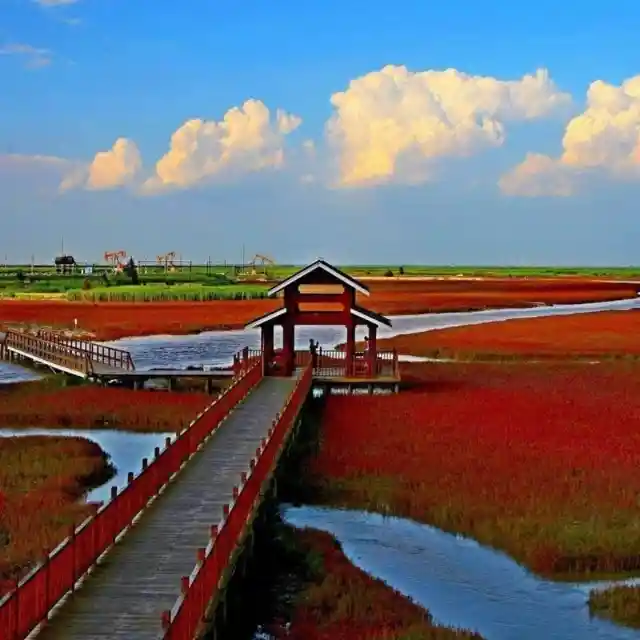
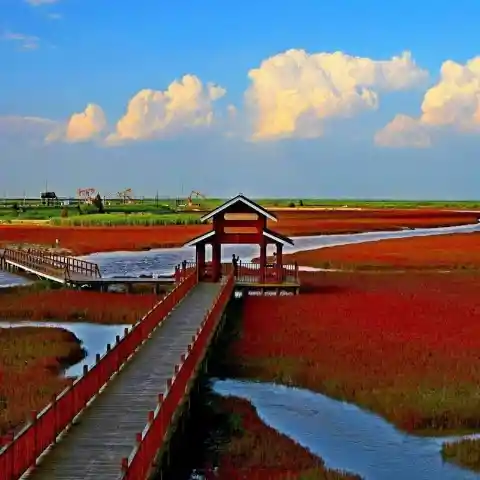
This usually happens in October, which is the best time to visit Panjin Red Beach. This unique landscape, pictured above, takes on its red color because the seepweed in the area absorbs the saltwater. The result is a romantic sight that’s deeply mesmerizing.
Parody Culture
One reason Chinese culture appears unique to the rest of the world is that it has developed its own practices and traditions in seclusion for hundreds of years. That being said, modern China also has a way of incorporating foreign influences, but in its own way.


This takes the form of tweaking the name of popular brands to make them their own. So don’t be surprised to see a Chinese-looking Colonel Sanders when roaming the streets. This is partly due to their weak enforcement of intellectual property rights.
Lugging Water Bottles
Although the idea of walking from place to place with a giant water bottle might sound inconvenient, many Chinese people prefer to do this. That’s because they enjoy staying hydrated with warm water. They’ve been doing this since at least the 4th century B.C.
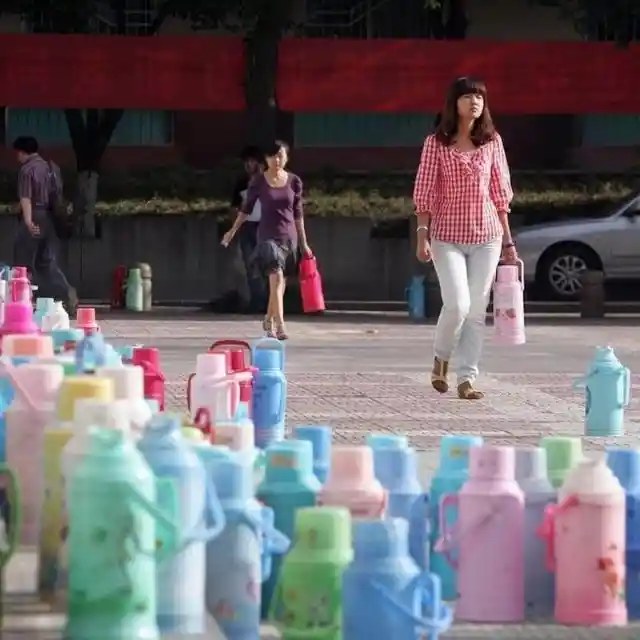
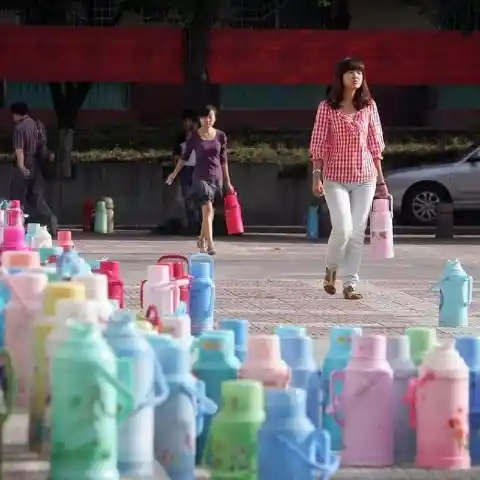
It’s mostly for health reasons. Cold water can negatively affect our stomach and upset our spleen’s ability to distribute Qi, or life force. Hot or warm water doesn’t, and it can get rid of our body’s humidity.
Eccentric Attraction
Sometimes it can feel that every house or building is more or less the same – furniture on the ground, lamps on the ceilings. If you feel that way in Shanghai, there’s a special home that can cure that boredom by flipping that assumption upside down – literally!


Once inside, people can walk around on the inverted ceiling, and marvel at the furniture stuck overhead. It is a beautiful mess, eccentric to the core, that gives people a one-of-a-kind experience when in China.
Outdoor Exercise Equipment
Chinese people often live to be quite old. A big part of this is their diet. They usually eat fish, plant-based foods, and poultry, with the occasional bit of red meat. It’s embedded in their culture to eat Yin foods (bitter, salty, and sour) while focusing on balance and not overeating. They do not overindulge themselves.
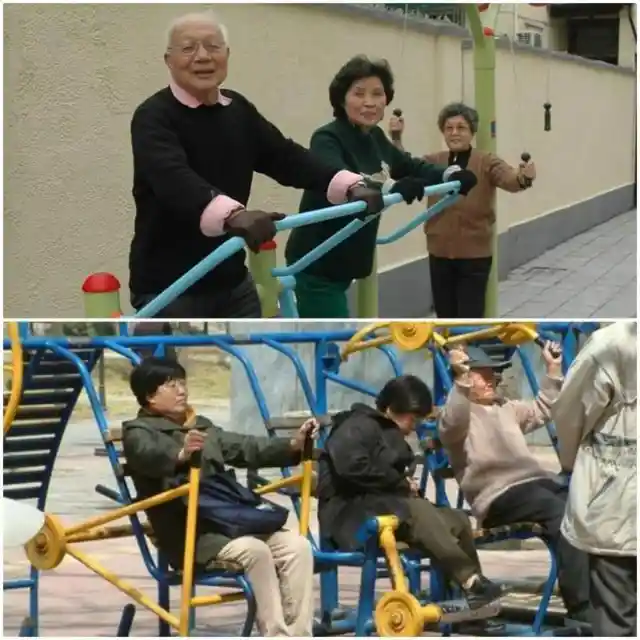
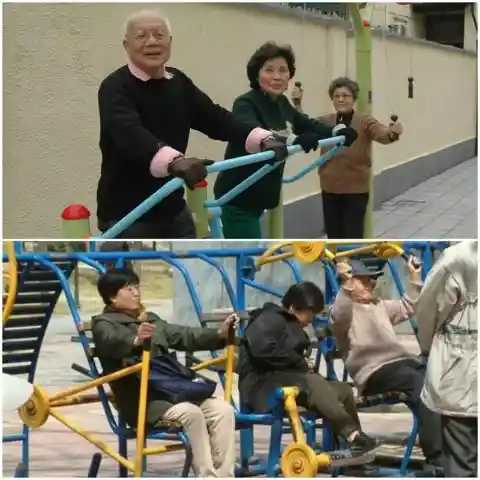
Another reason is exercise. You will notice that many Chinese people use the outdoor exercise equipment installed in parks and other public places. It’s free to use by anyone and encourages people to maintain strength and flexibility.
Ghost Communities
Outside China’s major cities, luxurious condominiums tower over wide-open seas and golden fields. The buildings themselves are complete with gyms, pools, and other amenities. Although the road network is extensive, no vehicles can be found using it. In fact, all the apartments are devoid of people.


Property value in China is always expected to rise, so developers and construction companies continue to build these ghost communities. What might be eerie to outsiders can be a sign of a promising future for some Chinese people.
Possible Intellectual Property Rights Infringement
Making reproductions of university textbooks is generally considered to be okay in China. Photocopiers and photocopy shops are readily available in schools and on the street. Plenty of students and professors use these services to print off sections of books or the entire book itself.
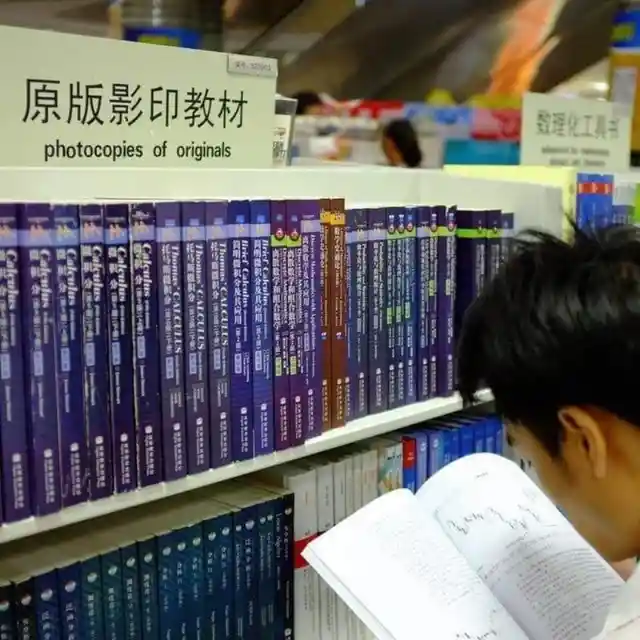
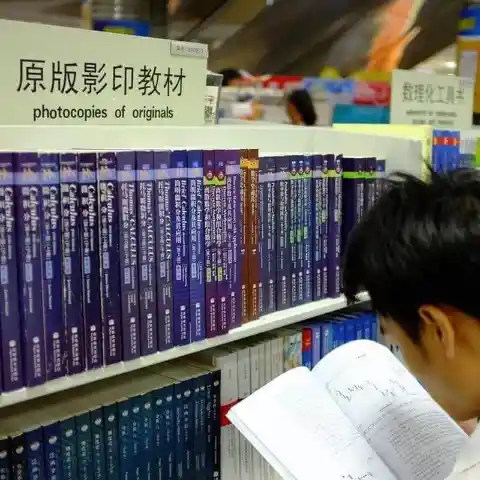
These photocopied books might be considered intellectual property theft in other countries, but China has a more lax system in regards to this. Academics and others who need to study written material rely on this method because it’s cheap and convenient.
Automatic Crab Dispenser
It might be confusing to see live crabs being sold from sidewalk vending machines, especially if you’re a newbie traveler to China. Most likely, you’d do a double-take just to make sure. Oddly enough, it’s true. Whereas most western countries stock their vending machines with snacks and sodas, China stocks theirs with live crabs on top of the snacks and sodas.
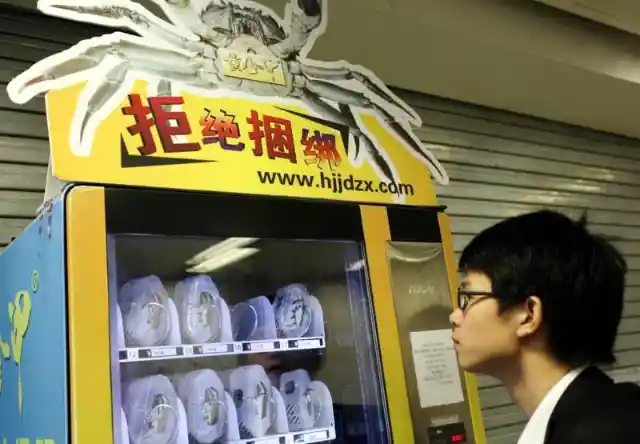

This convenience caters to an increasingly fast-paced lifestyle. These machines are restocked on a daily basis and include many condiments and flavors to choose from.
Transparent Pedestrian Bridge
It might feel like you’re flying through a mountain when you walk on the tallest and longest glass bridge in the world. Located in Zhangjiajie, visitors who dare to walk across can look down and see almost a thousand feet below, no doubt causing chills in every bone in their body.


But this is exactly why the glass bridge is so popular with tourists. They want to experience the danger while being safe, kind of like actors shielded from a harsh audience by a fourth wall.
The Value of Being Frugal
The majority of Chinese people avoid living a flashy lifestyle. In fact, they are proud to show how frugal they can be, a pragmatism that’s been learned through the years and from their experience of economic hardships in the past.
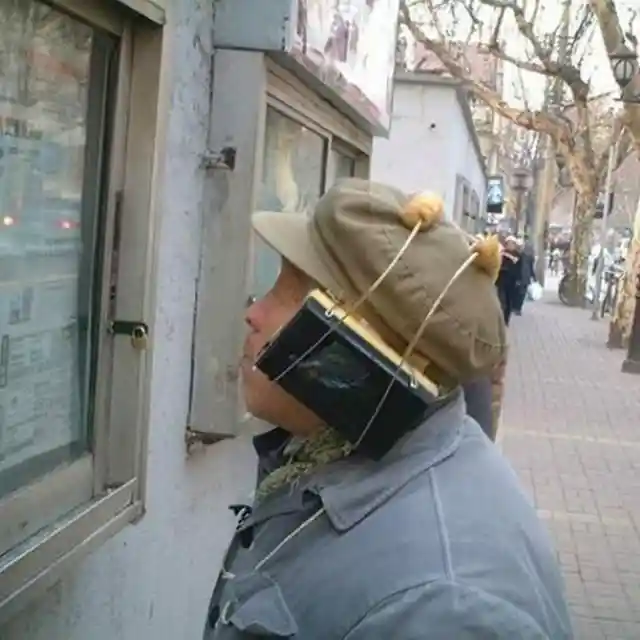
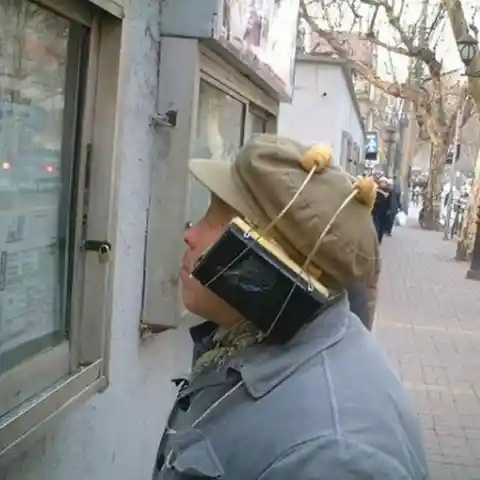
They prefer home baking, preserving old things, and keeping makeshift goods for as long as they do the job. They have other, more important things to worry about – education, healthcare, retirement, the life they leave behind to their families, etc. Being thrifty is part of their nature.
China’s Daring Architecture
Although a lot of China’s urban buildings, like city buildings everywhere, look more or less the same, there are quite a few exceptions. Alongside the big apartment blocks housing thousands of people are bold designs that stand out from the crowd. These can help inspire people to dream big.


So visitors to the country shouldn’t be surprised to see extremely tall skyscrapers, sharply colored rococo buildings, or structures with odd shapes like the mobile phone replica above. These daring experiments are a testament to the skills of Chinese architects and engineers.
Day Off
Chinese people aren’t afraid to put in the work necessary to reach their goals. They often strive to be the best they can be and are willing to endure some discomfort to achieve their ambitions. To back this up, a global survey has found the Chinese to be the most industrious workers in the world.
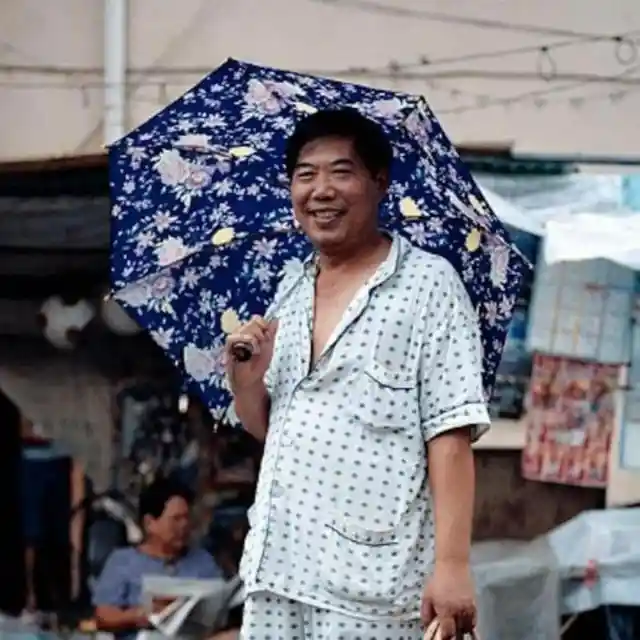
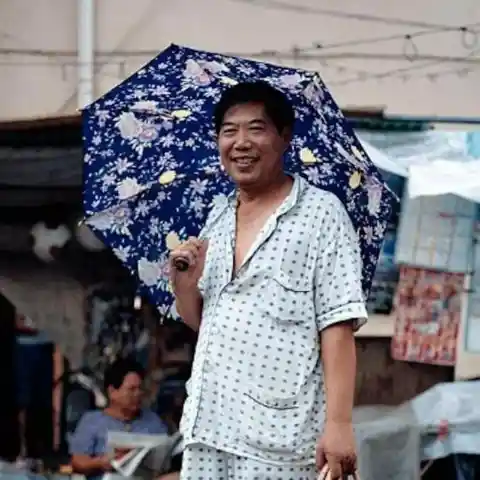
But they also know when it’s time to rest. They make the most of their Sundays by spending time at parks with family, eating out in restaurants, playing sports for good health, or socializing with friends.
Large Yellow Ducks
Plump rubber ducks have started to make their way towards China’s lakes, rivers, and ponds. They can bring joy and happiness to those who are pleasantly surprised to witness them and be reminded of their childhood days. Originally designed by Florentijn Hofman, a Dutch artist, the image below became viral after the giant duck was sent to China as a gift from Amsterdam.
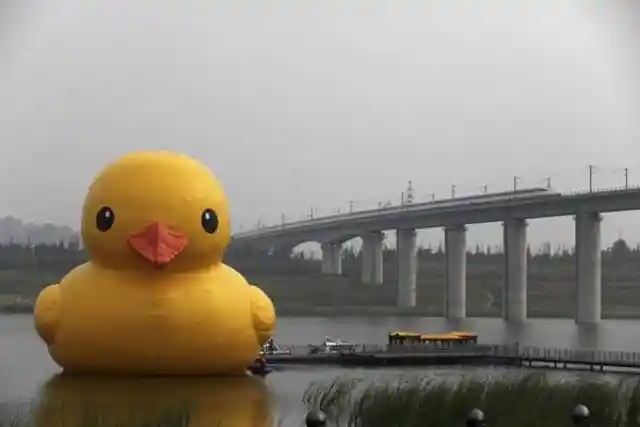

Now people can see different sizes of this yellow duck almost anywhere and for a variety of reasons – political, commercial, or just for plain fun. It’s all the rage in China.